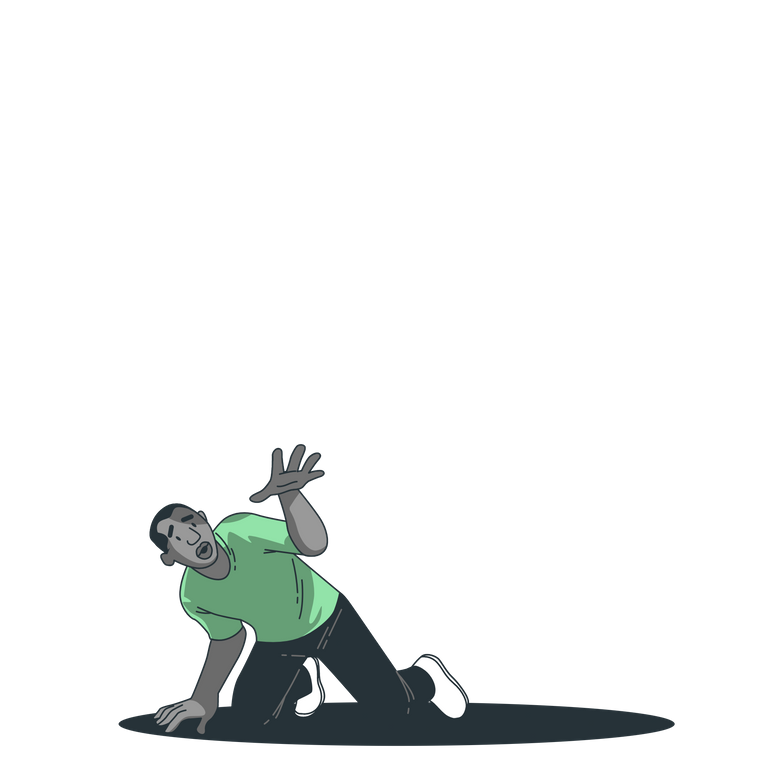Exploring Freud's Theory of Personality and Its Criticisms: A Focus on Conduct Disorders and Antisocial Behavior

People illustrations by Storyset
Sigmund Freud is one of the most respected psychiatrists and is one of the most influential figures in the development of the field of psychoanalysis, which is a form of psychotherapy aimed at dealing with mental health disorders by unconscious thoughts, emotions, and experiences.
His theories and ideas have had a significant impact on the field of psychology and continue to influence modern thought in psychotherapy and mental health treatment. He is not without criticism and controversy surrounding his works, and even though he forms the foundation for psychology and psychiatry, he has been labeled a sexist and misogynist.
Among those that have been pointed out as inadequate is his theory of personality. Freud believed that there are three key components of personality: the id, the ego, and the superego.
In Freud’s view, human personality is made up of these 3 components. The id was described as the most primitive and instinctual parts of personality and has unconscious desires and operates according to the pleasure principle, seeking immediate gratification of its needs and impulses. The id is the primitive and irrational desire like aggression, sexual desire, and hunger.
The ego is the rational and conscious part of our personality. It functions according to the reality principle, seeking to satisfy the needs of the id in a way that is socially acceptable and realistic. The ego acts as a mediator between the id and the external world and balances the demands of the id with the constraints of reality.
The superego is the part of the personality that is concerned with morality and social norms. It represents the internalized values and ideals of society and operates on the principle of conscience. It is responsible for enforcing social rules and standards, and it creates feelings of guilt and shame when these rules are violated.
The criticism towards his theory was that it lacked empirical evidence, it was an oversimplification of personality, lacked empirical support, and presented a negative view of human nature.
But was Freud onto something? Are we missing something here?
Conduct Disorders and Antisocial Behavior

One of the fields of interest I seem to be very drawn to is conduct disorders and antisocial behavior. I am very intrigued about what makes these disorders present the way they do.
Conduct disorders, the younger variant of antisocial personality disorder, present with violent behavior towards people and animals, impulsivity, lack of empathy, aggressiveness, irresponsibility, and superficial charm. Among the violent acts that are perpetrated towards are acts of sexual violence.
Antisocial personality disorder presents with all these features in adulthood and often times the diagnosis requires a past conduct disorder.
One controversial aspect of all this has been the issue of rape. One side of the argument considers this to be a cop-out for rapists in trials since the removal of paraphilia non-consent.
Rape itself stands out as a controversial topic, with many psychologists standing on the side that it is a matter of desires for control and power, and having no link to sexual desires.
The other side seems to side with more Freudian theories the belief that rape is a possession of the id.
The real disorder

People illustrations by Storyset
In a psychiatry podcast that I listened to, one of the cases of conduct disorder was presented by a psychiatrist. It was about a boy who had very violent behavior towards people, and sure enough, he exhibited all the features of antisocial behavior.
In one of the episodes, he was caught trying to microwave a kitten.
What desire could have provoked that? Could a case be made that humans all have a desire to be violent? Or is it a desire peculiar to this child?
In the case of rape and sexual violence, one must be very careful when discussing these issues.
Are rapists trying to fulfill a sexual desire and going against the superego? If so, is this not a disorder every time it presents itself? If they are not trying to fulfill a sexual desire and they are acting out just like the child who tried to microwave his cat (a desire for power or control), wouldn't that be considered an abnormal desire?
I would like to know what you think about all this in the comment section…
You can send me a message on WhatsApp at +2348134530293, and we can have a conversation, or you can speak with a licensed therapist.
Conclusion
In conclusion, the topics of Sigmund Freud's theories of personality and conduct disorders and antisocial behavior are complex and controversial. While Freud's theory of personality is criticized for lacking empirical evidence and being an oversimplification of human nature, it still remains a foundational concept in psychology and psychiatry.
On the other hand, conduct disorders and antisocial behavior present a unique challenge in understanding the motivations behind violent and abusive behaviors. While some argue that these behaviors stem from a desire for power and control, others suggest that they may be rooted in primal desires like those proposed in Freud's theory of personality.
The issue of rape and sexual violence is particularly sensitive, and it is essential to approach it with care and sensitivity. It is clear that these behaviors are harmful and go against social norms and moral values. However, it is important to understand the underlying motivations behind them to develop effective treatments and preventative measures.
Overall, these topics require ongoing research, discussion, and debate to fully understand the complexities of human behavior and to develop effective treatments for those who struggle with mental health disorders and antisocial behavior.

Inkscape.org
What are your thoughts on Freud's theory of personality and its impact on psychology and psychiatry? Do you think there are limitations to Freud's theory of personality, and if so, what are they?
What is your opinion on the controversy surrounding Freud's works and the accusations of sexism and misogyny leveled against him? What do you believe are the root causes of conduct disorders and antisocial behavior, and how can they be effectively treated?
How do you think society can address the issue of rape and sexual violence, and what role should psychology and psychiatry play in this effort?
Thanks for your contribution to the STEMsocial community. Feel free to join us on discord to get to know the rest of us!
Please consider delegating to the @stemsocial account (85% of the curation rewards are returned).
You may also include @stemsocial as a beneficiary of the rewards of this post to get a stronger support.
Freud is described as a pseudoscientist now, by some, though I disagree. Many of his concepts are now part of popular talk, and we don't even notice it. Like when we talk about the sub/unconscious, for instance. And we all know the unconscious exists, cos of how we may be unable to remember something now, but we remember it later, so it's stored in there somewhere, but we can't always access it. Or defense mechanisms, or Freudian slips ... there's a big list of valid contributions he made, and he also popularized the field. Dunno why some feel the need to denigrate him.
Most who feel the need to bring down his contributions do not have any valid reasons to other than his theories not applying in their lives. At the same time, they reject reality and take up what they feel it true and push away any concept and person who tries to go against their new think.
Gladly most of the world still gives honour to the man and are unwilling to take views that are not tried against time and logic.